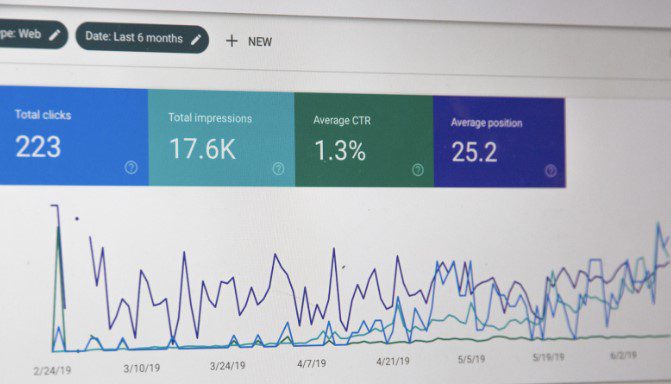Modern marketing can feel overwhelming with so many channels, touchpoints, and interactions.
Data analytics can help businesses like yours cut through the noise by providing a clear picture of what customers want and how they behave. This makes it easier to create more focused, relevant, and effective campaigns.
Let’s dive into how data analytics can transform your marketing game and set you up for lasting success.
The role of data analytics in enhancing marketing strategies
Companies can use data analytics in many areas of marketing, such as segmenting customers, fine-tuning campaigns, and predicting trends.
Curious how they pull it off? Here’s how:
- Collecting and managing marketing data
- Sources of marketing data
- Internal Sources: This includes data from your CRM, website analytics, email campaigns, and customer support tools. They offer insights into how customers interact with your business and what they prefer.
- External Sources: These are social media platforms, search engines, public databases, and third-party providers that give a broader view of market trends, competitor moves, and industry standards.
- Tools and technologies for data collection
Marketers can use various tools and technologies to collect, store, and manage marketing data. These include web analytics tools (e.g., Google Analytics), social media monitoring platforms (e.g., Hootsuite), customer feedback systems (e.g., SurveyMonkey), and data management platforms (e.g., Adobe Audience Manager).
- Best practices for data management and quality assurance
If you want to get the most out of your data, make sure to do these things:
- Set clear rules for data management
- Use consistent methods for data collection
- Double-check data for accuracy
- Regularly update and clean your data
- Follow privacy and security guidelines
- Understanding customer behavior
- Customer segmentation
This involves grouping customers based on things they have in common—like demographics, interests, or buying habits. These insights allow marketers to create personalized campaigns that resonate with each audience segment.
- Purchase history analysis
History has always helped us uncover patterns and gain insights—even in business. The information from purchase history analysis is used to suggest products, offer relevant cross-sells and upsells, and build loyalty programs that keep customers returning.
- Churn rate analysis
This analysis tracks how many customers stop doing business within a certain period.
Big help, right? It helps marketers spot at-risk customers, figure out why they’re leaving, and take steps to improve retention.
- Fine-tuning marketing campaigns
- A/B testing and multivariate testing
These testing methods compare different versions of marketing assets—like emails, ads, or landing pages—to see which one performs better. Based on the results, marketers can tweak their campaigns to boost engagement, conversions, and overall returns.
- Campaign performance analysis
This one is especially helpful for determining what’s working and what isn’t. The insight gathered from campaign data allows marketers to focus on the most effective strategies, adjust in real-time, and allocate resources wisely.
- Targeted marketing
Want to win the support of your audiences? Offer personalized content.
Tailoring messages and content based on customer behavior and preferences makes marketing more relevant. With this approach, businesses can create experiences that attract new customers and build loyalty and long-term engagement.
- Enhancing digital marketing with data analytics
- SEO and content marketing insights
The data that you have is essential in unveiling how well your SEO efforts and content are performing. These insights are vital in crafting strategies to improve search visibility and attract better leads.
- Social media analytics
Digging into this can get you a clearer picture of audience behavior, pinpoint critical influencers, and gauge how well their campaigns drive engagement, awareness, and conversions across platforms.
- Email marketing analytics
Email analytics reveal critical insights, such as open rates, click-through rates, and conversion metrics. These insights enable marketers to refine their email strategies, sharpen targeting, and boost engagement for higher returns.
- PPC campaign optimization
Data from paid search campaigns offer valuable guidance for adjusting targeting, ad copy, and bidding strategies. This leads to more improved click-through rates and better conversions.
- Predictive analytics for future marketing strategies
- Trend and demand forecasting
Anticipating future customer needs, preferences, and behaviors can be a game changer for businesses to supercharge their marketing strategies. Quickly spotting emerging trends and shifts in customer behavior equates to staying ahead of the game.
- Product development insights
Data-driven insights from customer feedback and market analysis shape product design and strategies, guaranteeing that new offerings align more with customer preferences and market demands.
- Pricing strategy optimization
Predictive analytics supports smarter pricing decisions by considering factors like customer willingness to pay, competitor pricing, and market trends. The result? A strategy that drives both revenue and customer satisfaction.
Power up your marketing game!
Creating a data-driven marketing strategy means taking a well-rounded approach that covers everything from collecting and analyzing data to applying those insights effectively. With data analytics baked into your processes, you can make smarter decisions, fine-tune campaigns, and see better outcomes. Mix it with good PR, and you will have strengthened brand visibility, credibility, and trust.
Want to up your marketing game? Connect with a trusted public relations agency like NGP-IMC and watch your brand become unstoppable!

Irishbeth Relampagos is a writer who specializes in crafting copies across various content formats, mainly SEO blogs and marketing materials. Her passion for translating ideas into impactful content has helped brands connect with their audiences in ways that transcend superficial and transactional interactions.
Irishbeth pursued English Language Studies at Polytechnic University of the Philippines where she honed her skills in writing. While originally focused on writing poems and opinion pieces, she shifted her career path to content writing after a successful stint as an SEO content writer during her internship.


